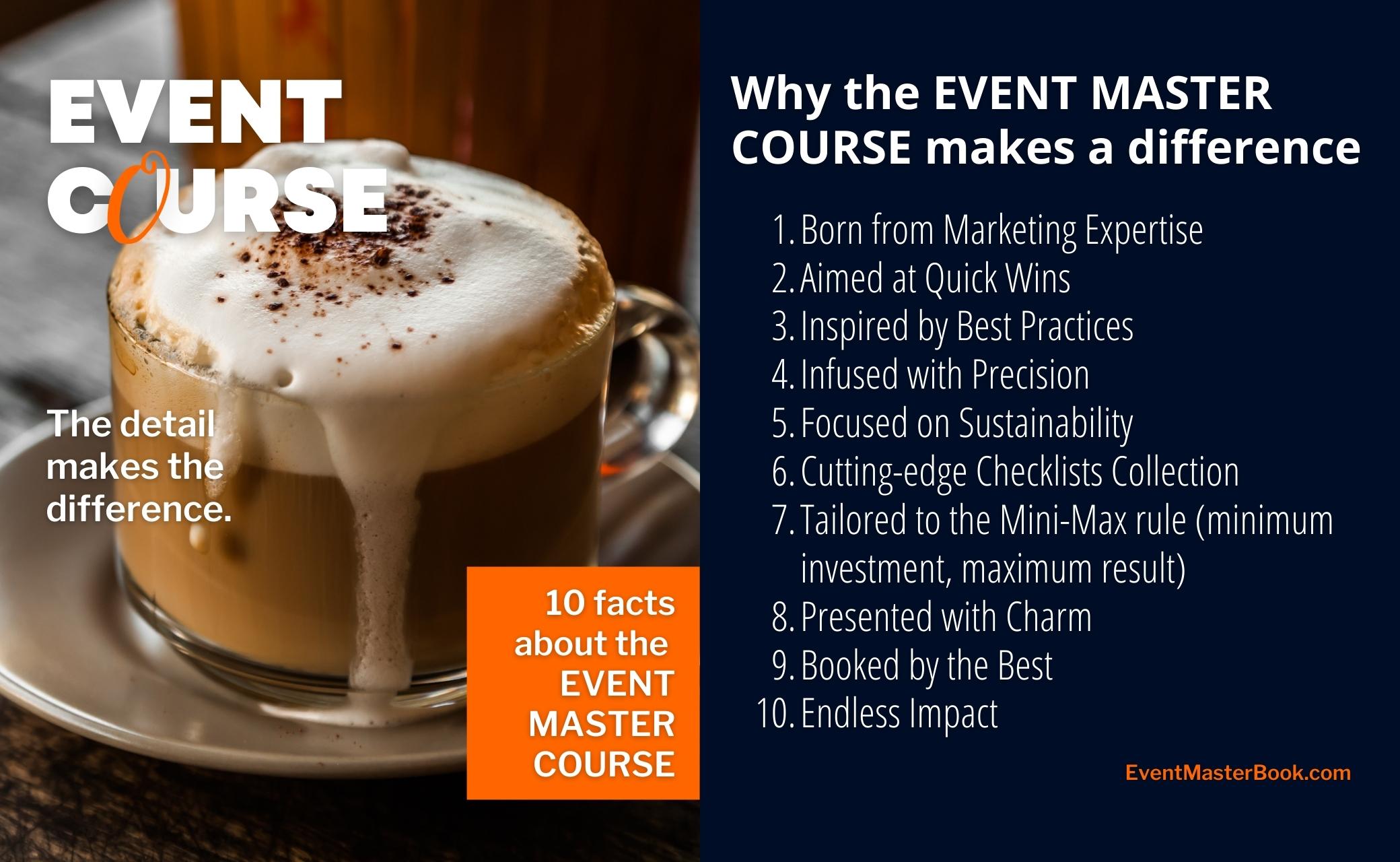The Corona pandemic isn’t over yet, but most Corona-based constraints on event organization have been dropped. There is optimism in the global events industry and most event organizers have returned to day-to-day business, which means they are turning their attention back to "on-site" and "in-person" events.
But online events can also be a good "post Corona" alternative to on-site event formats. They are a better choice when an event’s primary purpose is information and knowledge transfer, rather than in-person networking and real-life experience. Online and virtual events can save a lot of time, money and materials, thus helping to protect the environment.
But people prefer real-life experiences, and so online event organizers need some clear advantages designed for their virtual event formats. The eventmasterbook.com editorial team has 5 tips to turn online events from "second best" to first choice.
1. Program variety / freedom of choice for participants
A key advantage of online events is the ability to schedule many parallel sessions when planning the event program. Exciting speakers and live acts can be included from anywhere in the world. Accompanying on-demand content can also increase the attractiveness of the online event. Pre-recorded keynote speeches by experts who cannot be on stage live/online increase the program variety and therefore increase the freedom of choice for the online audience.
2. Arouse curiosity / pre-event activities
For all event formats, the undesirable "no-show" rate can be reduced by building up curiosity and tension. But how can you handle this in the run-up phase of the event, so that all those people who are invited actually participate? First of all, you need some interesting people and/or exclusive information and/or outstanding experiences that are only available to those who are attending the live event. Recording the entire event program and then offering it completely "on demand" in the follow-up phase of the live event is never a wise decision. Why should people attend a live event when everything afterwards is available via "VOD" (video on demand)?
So it’s a better idea to come up with some exclusive agenda items that are "revealed" step-by-step in the run-up to the event. You can also publsih exciting theses or ask "provocative" questions that will be answered exclusively during the live event. Or create an exciting challenge that can only be mastered by working in teams on site.
3. Live-chats
Live-Events, whether in-person or online, need interaction! However, this is often forgotten in the case of virtual events. One tool available with all professional video conferencing systems is the chat function. And it is precisely the chat function that can offer real added value to an online event, compared to a classic face-to-face event. At online events, all participants can be "heard" via the group chat, whereas at face-to-face events, only a few voices from the audience can ever be heard. The best online events are those with extensive chatting. With larger groups, it is important to involve a second (or third) moderator in the back office who keeps an eye on the chat and gives the (first) moderator, who is visible to the participants, keywords or summaries.
4. Virtual breakout rooms for intimate conversations
Virtual breakout rooms, where you can talk to a prominent speaker 1:1 or in a small group, can also add significant value. Such "side rooms" allow for intimate conversations. In fact, there are people who prefer close, personal communication with a "stranger" online rather than in a live, on-site conversation.
5. Last but not least: limit the ticket contingent!
For face-to-face events, a limited ticket contingent is a given due to limited room capacity. Many online events, on the other hand, aim to attract as many participants as possible. This digitally conditioned "infinity" has disadvantages, however, because both the opportunity to interact and the desire to be there live are weakened by (too) large numbers of participants. Sometimes it is better to strictly limit both the tickets for a virtual event and the registration period. Especially in the online space, many people have the feeling of unlimited availability. And this feeling is the reason why people don’t sign up immediately when they are invited, but wait to secure a ticket just before the event date. In the meantime, however, many of the people forget that they wanted to register. And so you lose visitors who are actually interested. Therefore: limit tickets and the registration deadline – and refrain from recording the entire event for later on-demand videos. Then online events (virtual events, digital events) should still be very popular "post Corona".
Cover image: eventmasterbook.de editorial team / AdCoach (adcoach.de), Publisher

Related topics:
Online event, virtual event, digital event, online seminar, webinar, online conference, online meeting, added value, event marketing, experiential value, experiential factor, tips for online events, event planning, event management
Seminar tip on the topic:
The online course "Event Master Course" (available here on the platform) guides you step-by-step through all the important topics of event planning and also helps you even to master the "Switch to Digital" with numerous tips and useful checklists. (Latest quote regarding the course from the USA / participant of the international course version on eventmasterbook.com: "Event Master Course is the best online course, with a lot of important information that you can not find in many other online courses. 10 Stars of Excellent.")
Click here for more information (Event Management Online Course – Event Master Course description and registration).









